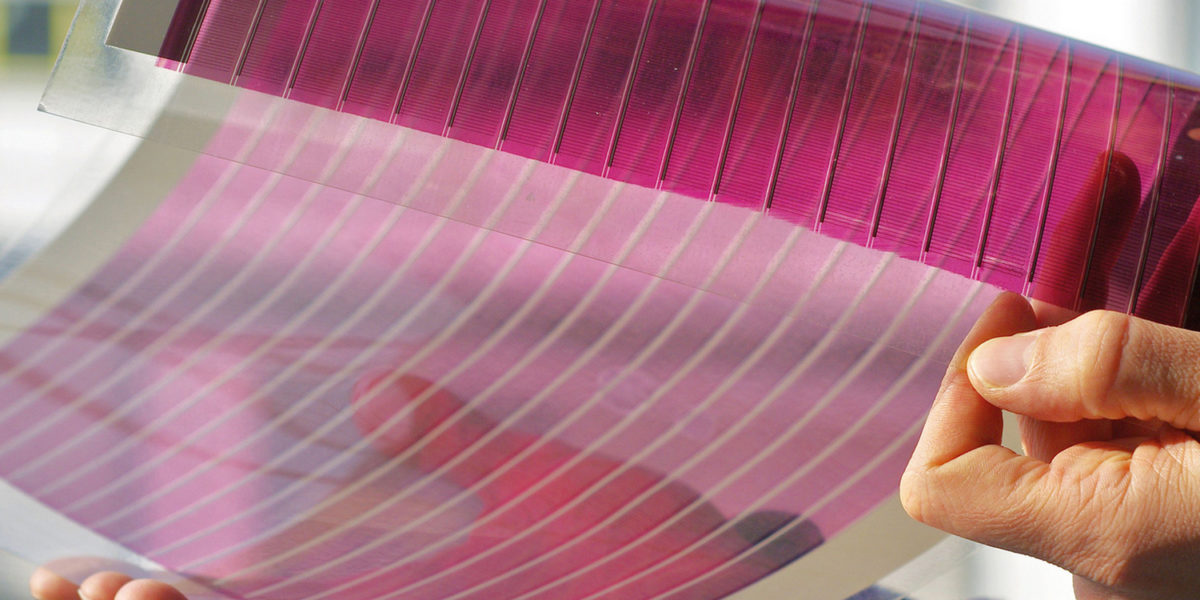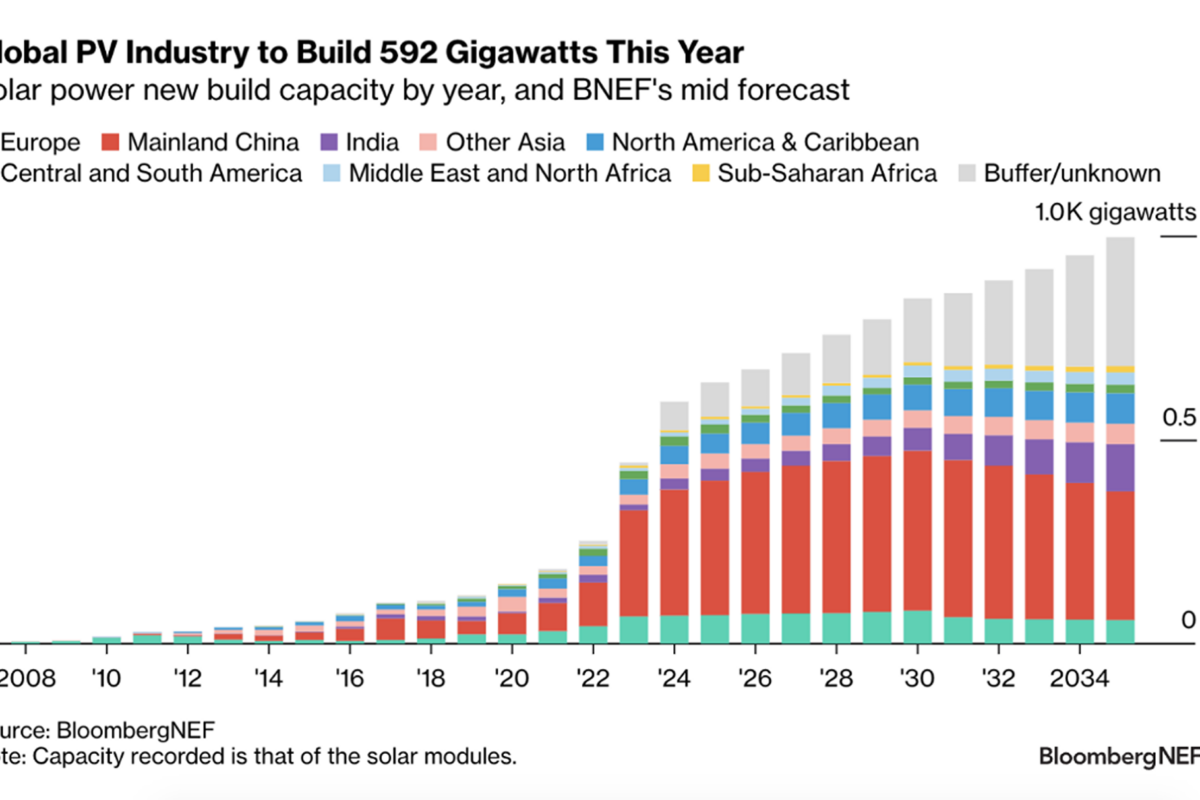From pv magazine Germany.
Scientists from German solar research institute the Fraunhofer ISE, in cooperation with the FMF Materials Research Center at the University of Freiburg, have have achieved record efficiency of 14.9% for a 1.1cm2 organic solar cell.
The device represents a breakthrough, given the struggles researchers have had deploying synthetic organic chemistry-derived materials at anything other than a tiny scale.
The Fraunhofer researchers had previously designed a cell layout to divert electricity very efficiently from the active cell surface. “When we achieved high efficiencies with a commercial absorber material on small laboratory cells, we wanted to know whether this could also be achieved on the larger area of 1.1cm2,” said Fraunhofer researcher, Birger Zimmermann. “We were very satisfied with the results because we did not experience any losses.”
Uli Würfel, head of the organic and perovskite photovoltaics department at Fraunhofer ISE, and group leader at the FMF Freiburg, said: “We also have a few ideas on how to further increase efficiency … the next weeks and months will be very exciting.”
The scientists now want to explore the use of their device in large scale, high-performance modules. “Together with industrial partners, we will continue to bring organic photovoltaics to market maturity,” said Fraunhofer director Andreas Bett.
The Fraunhofer-Freiburg research was carried out under the ‘H2OPV – Organic photovoltaics to cover water reservoirs' project funded by Germany's Federal Ministry for Economic Affairs and Energy.
This content is protected by copyright and may not be reused. If you want to cooperate with us and would like to reuse some of our content, please contact: editors@pv-magazine.com.



By submitting this form you agree to pv magazine using your data for the purposes of publishing your comment.
Your personal data will only be disclosed or otherwise transmitted to third parties for the purposes of spam filtering or if this is necessary for technical maintenance of the website. Any other transfer to third parties will not take place unless this is justified on the basis of applicable data protection regulations or if pv magazine is legally obliged to do so.
You may revoke this consent at any time with effect for the future, in which case your personal data will be deleted immediately. Otherwise, your data will be deleted if pv magazine has processed your request or the purpose of data storage is fulfilled.
Further information on data privacy can be found in our Data Protection Policy.